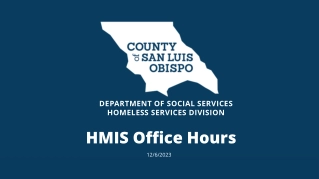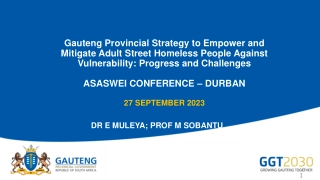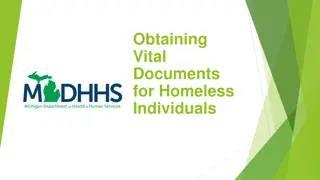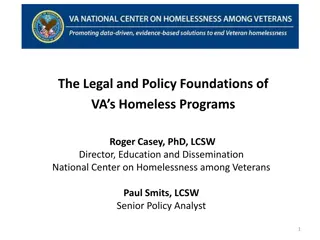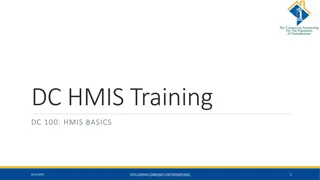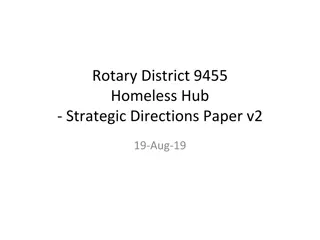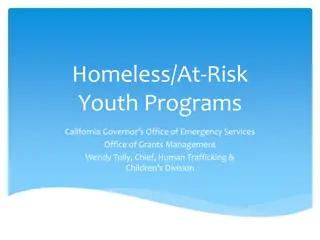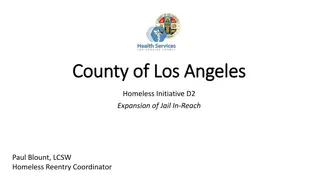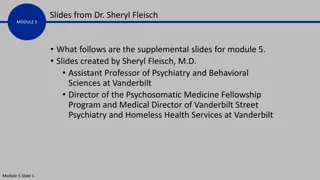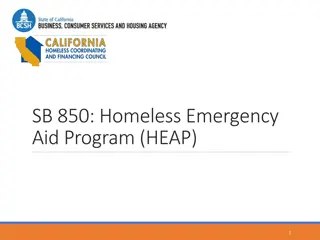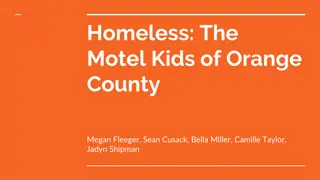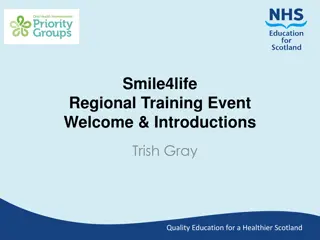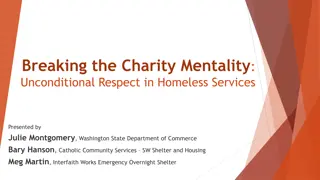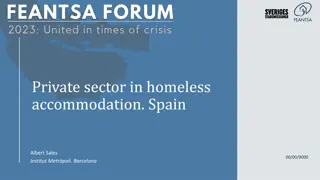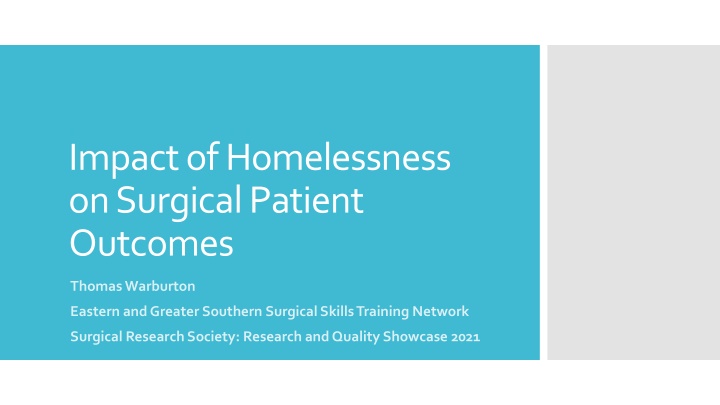
Impact of Homelessness on Surgical Patient Outcomes Study
Explore the impact of homelessness on surgical patient outcomes through recent research findings, highlighting the challenges faced by homeless individuals in accessing healthcare services and the potential implications on their surgical experience and recovery.
Download Presentation

Please find below an Image/Link to download the presentation.
The content on the website is provided AS IS for your information and personal use only. It may not be sold, licensed, or shared on other websites without obtaining consent from the author. If you encounter any issues during the download, it is possible that the publisher has removed the file from their server.
You are allowed to download the files provided on this website for personal or commercial use, subject to the condition that they are used lawfully. All files are the property of their respective owners.
The content on the website is provided AS IS for your information and personal use only. It may not be sold, licensed, or shared on other websites without obtaining consent from the author.
E N D
Presentation Transcript
Impact of Homelessness on Surgical Patient Outcomes Thomas Warburton Eastern and Greater Southern Surgical Skills Training Network Surgical Research Society: Research and Quality Showcase 2021
McBride KE, Solomon MJ, Young JM, Steffens D, Lambert TJ, Glozier N, Bannon PG. Impact of serious mental illness on surgical patient outcomes. ANZ J Surg. 2018 May 14 Retrospective cohort study of elective surgical admissions 2010-2014 Sydney Health District Review of ICD-10-codes: NSW Health Information Exchange Database 22,343 patients Outcomes: In hospital mortality (2%vs 0%) Post-op complications (22%vs 8%) Morbidity (7.6vs 3.4) Length of stay (12.2 vs 4.6) Length of time in ICU (34.6vs 5.0) hours Readmission rates (14%vs 10%) Cost of hospitalisation ($24,162 vs $12,336) Impact of mental illness on surgical outcomes
>116,000 in Australia 8,000 currently sleeping rough 63% in capital cities and rising Homelessness in Australia
Major risk factor for acuteand chronic illness. Greater risk of infectious diseases, psychiatric comorbidity and drug-use. How homelessness impacts health Complex interplay between homelessness and health: Davies and Wood MJA (2018) Australian homeless suffer premature deaths Worse outcomes of healthcare in international studies
Titan et al (2018): large study finding significantly higher rates of readmissionamongst homeless vs housed veterans in USA How does homelessness affect surgical outcomes? Very few studies examining outcomes for homeless surgical patients Intuitively, homelessness is likely to lead to worse inpatient outcomes for surgical patients
Retrospective database review Ethics applied for and approved at SVHS Methods Reviewed the St Vincent s Hospital Sydney Health Database for emergency surgical admissions
Population All emergency surgical admissions >18years old from 2015-2020 (incl.) Intervention Patients identified as homeless based on ICD-10 code Z59.0or postcode recording of 9998(No Fixed Address) Comparison All other surgical patients not identified as homeless Methods Outcomes In-patient mortality Surgical complication (ICD-10 codes T81.0-T89.9) Length of hospital stay (days) Length of ICU stay (hours) Readmission within 28 days (yes vs no) Discharge against medical advice (yes vs no)
Estimate a rate of surgical complication rate: of 8% in the general population and 15% in the population experiencing homelessness 90% power at a significance level of 0.05 to detect a difference between the groups of 0.07 (7%) Sample Size / Power Calculation Require at least 2242 domiciled surgical patients and 224 surgical patients experiencing homelessness
All emergency surgical admissions to St Vincents Hospital Sydney 2015-2020 2015: 3856(94 homeless) 2016: 3947(102 homeless) 2017: 3992(85 homeless) Data so far 2018: 3916(52 homeless) 2019: 4010(72 homeless) 2020: 3579(60 homeless) Total: 23,300 (465 homeless)
Exclusions: Procedural but not surgical admissions (e.g. endoscopy). Statisticalanalysis: Univariate associations between categorical patient factors (sex, treating surgical specialty) and outcomes (surgical complication, mortality, ICU admission, readmission, and discharge against medical advice) will be assessed with chi-squared tests. Aims Univariate associations between categorical data (as above) and numerical data (age, length of stay) will be assessed with t-tests. Logistic regression will be used to analyse association between homelessnessand surgical outcomes, after adjustment for patient demographics (age, sex) and confounders (surgical specialty, acute psychiatric or substance use comorbidities). Software: SPSS (version 28). P < 0.05 will be accepted as significant.
McBride KE, Solomon MJ, Young JM, Steffens D, Lambert TJ, Glozier N, Bannon PG. Impact of serious mental illness on surgical patient outcomes. ANZ J Surg. 2018 May 14. doi: 10.1111/ans.14508. Epubahead of print. PMID: 29756676. Census of Population and Housing: Estimating Homelessness, 2016 [Internet]. Australian Bureau of Statistics. 2018 [cited 10 August 2021]. Available from: https://www.abs.gov.au/statistics/people/housing/census-population-and- housing-estimating-homelessness/latest-release Pawson H, ParsellC, Liu E, Hartley C, Thompson S. Australian Homelessness Monitor 2020 [Internet]. Launch Housing; 2020 p. 65. Available from: https://data.launchhousing.org.au/app/uploads/2020/10/Australian- Homelessness-Monitor-2020.pdf Australian Housing and Urban Research Institute. Homelessness surges in capital cities [Internet]. 2019 (cited September 2021). Available from: https://www.ahuri.edu.au/__data/assets/pdf_file/0020/41159/AHURI-MEDIA- RELEASE-Homelessness-surges-in-capital-cities-30-May-2019.pdf ZlotnickC, ZergerS. Survey findings on characteristics and health status of clients treated by the federally funded (US) Health Care for the Homeless Programs. Health Soc Care Community. 2009 Feb;17(1):18-26. BeijerU, Wolf A, Fazel S. Prevalence of tuberculosis, hepatitis C virus, and HIV in homeless people: a systematic review and meta-analysis. Lancet Infect Dis. 2012 Nov;12(11):859-70. References

